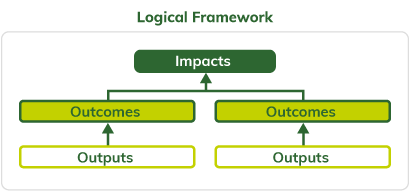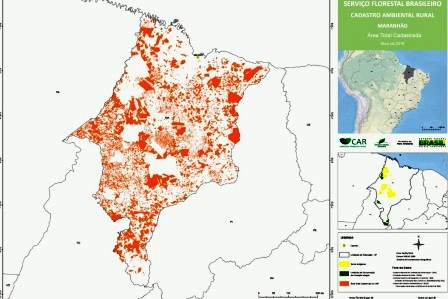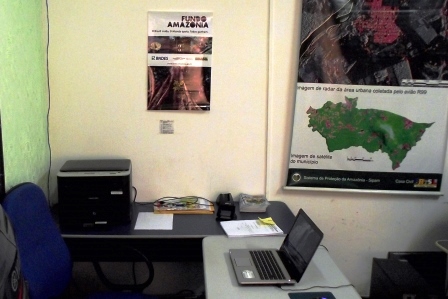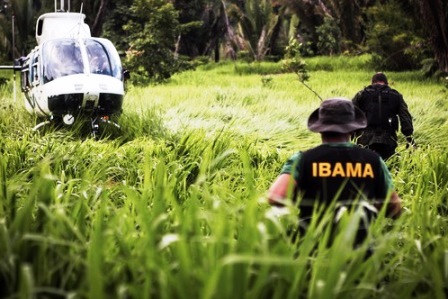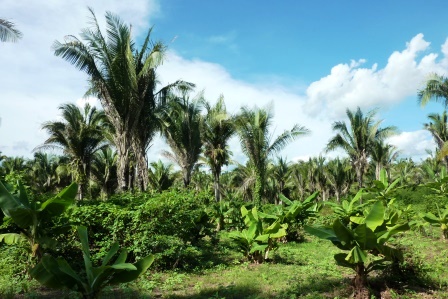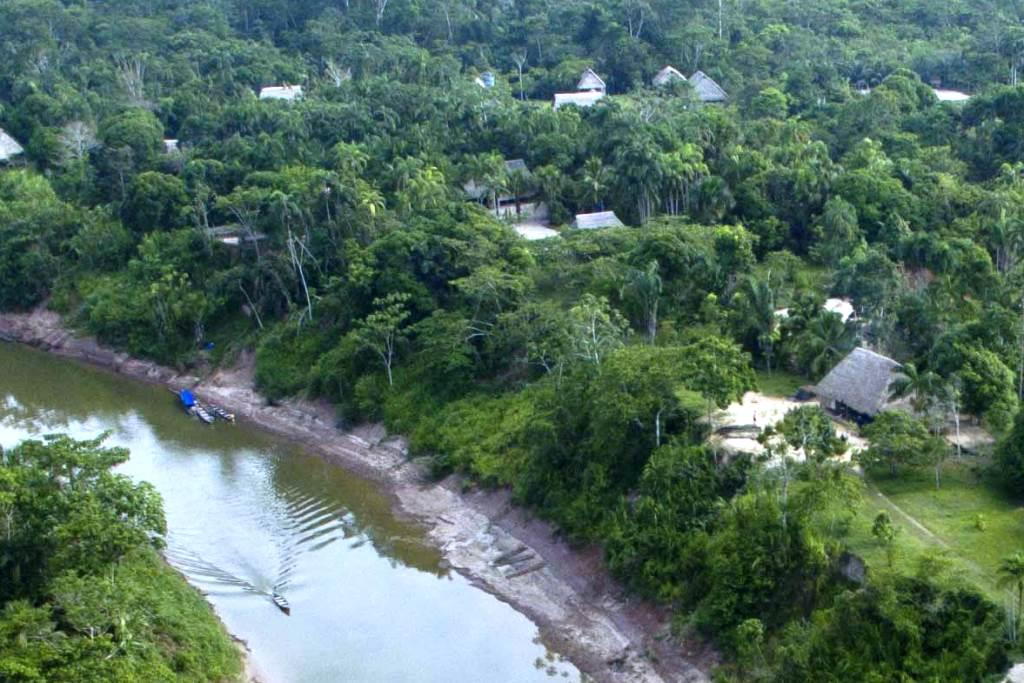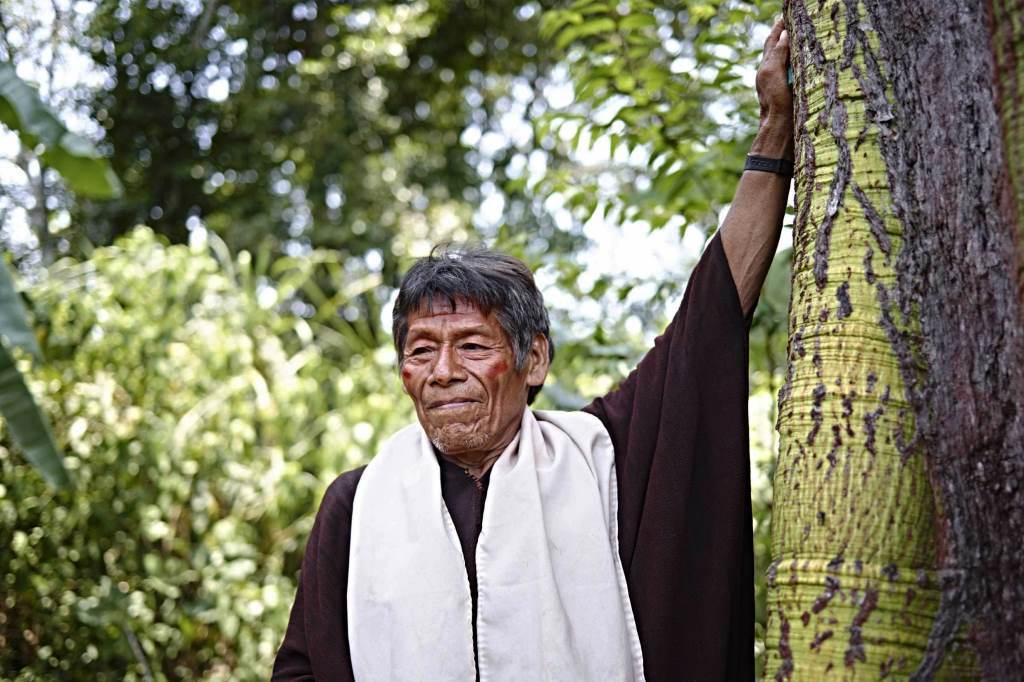INSTITUTIONAL AND ADMINISTRATIVE ASPECTS
Sementes do Portal worked in partnership with three institutions: the Pastoral da Terra Commission, the Female Farmers Movement (Movimento de Mulheres Camponesas) and the Regional Community Association for the north of the state of Mato Grosso. These organizations played an important role, working as mobilization agents in their municipalities under their influence (Terra Nova do Norte, Nova Canaã do Norte and Nova Guarita, respectively), besides providing support for the general coordination of the project and dialogue with other institutions.
Management councils, comprising communities benefiting from the project, sought to create partnerships with local city councils. Those partnerships that developed were specific, yet important, to outlining the phases of the project, such as making transport to events feasible and supplying saplings.
INDICATORS OF RESULTS AND IMPACTS
Main indicators of the project:
- Recovered area with agroforestry systems
The target established by the project was to recover 1,200 hectares. Through the project, some 1,246 hectares of agroforestry system were implemented. As most areas undergoing recovery were planted in permanent preservation areas, which are legally protected, the chances of them being used for some other purpose in the future are slim.
- Recovered area used for economic purposes
Some 194 hectares were effectively recovered for economic purposes (of the total 1,246 hectares), since this is the area that is to be initially incorporated into a program aimed at commercializing the production.
A total of R$ 1,548,142.64 (US$ 660,865.09) was received in seeds and saplings directly from farmers over the three years of work. This amount is expressive and motivated many families to join the efforts to collect seeds.
- Number of individuals involved in collecting seeds
In the year with the highest level of involvement, close to 300 people took part in collecting seeds.
- Number of families and people benefiting
The project Sementes do Portal ended its efforts with 1,246 hectares undergoing recovery (not including the areas that were discarded as unsatisfactory) on 518 properties. A total of 1,916 people (518 families), of which 1,053 were males (55%) and 863 were women (45%), benefited directly from the project’s efforts.
- Annual deforestation rate in municipalities where the project was developed, measured by the National Institute for Space Research (INPE)
|
Deforestation rate in municipalities in the Portal of the Amazon (km²)
Source: INPE
|
|
Municipality
|
2004
|
2005
|
2006
|
2007
|
2008
|
2009
|
2010
|
2011
|
2012
|
|
Apiacás
|
228,9
|
148
|
50,2
|
73,8
|
46,5
|
13,8
|
15,2
|
14
|
12,3
|
|
Alta Floresta
|
230,9
|
124,9
|
97,1
|
61,4
|
15,3
|
7,2
|
3
|
5,8
|
1,6
|
|
Carlinda
|
41,2
|
16
|
2,7
|
6,7
|
3,9
|
0,2
|
0,3
|
0,7
|
0,1
|
|
Nova Guarita
|
13,9
|
12,5
|
0,7
|
1,6
|
3,3
|
0
|
0,4
|
1,4
|
1,1
|
|
Nova Canaã do Norte
|
95,4
|
73,3
|
30,3
|
34,8
|
21,4
|
5,1
|
3,5
|
4
|
0,8
|
|
Terra Nova do Norte
|
23,2
|
28,5
|
11,7
|
20,4
|
13,1
|
3,2
|
0,8
|
4,1
|
3,9
|
|
Matupá
|
63,6
|
69,3
|
29,3
|
74
|
75,5
|
9
|
9,4
|
29,5
|
13,3
|
|
TOTAL
|
697,1
|
472,5
|
222
|
272,7
|
179
|
38,5
|
32,6
|
59,5
|
18,8
|
In Table 1, it is easy to see the annual deforestation in the municipalities where the project was developed, all of which are located in the extreme north of the state of Mato Grosso. It is important to point out that the activities carried out in the municipality of Matupá did not include reforestation or recovery of degraded areas, but rather seed collection conducted by the Terena indigenous community.
Analyzing the table, data shows a substantial fall in total deforestation as of 2006, due to the implementation of public policies aimed at combating this problem as of 2004. In the year previous to disbursements from the Amazon Fund, that is, in 2009, annual deforestation was at 38.5 km2 for the group of municipalities that then received benefits through the project. In 2012, average deforestation measured by INPE was at 19.8 km2. The drop in deforestation in these municipalities is favorable news, but such results can not be exclusively attributed to the Amazon Fund.
Other indicators accompanied by the project:
- Number of rural producers trained to implement agroforestry systems (SAFs): 2,574
- Number of rural producers trained to collect seeds: 350
- Number of Terena community members trained to collect seeds: 75
- Number of youths trained for environmental production and recovery: 16
- Number of technicians hired and trained: 8
- Number of seed houses structured: 10
- Number of rural properties georeferenced: 622
- Rural property area georeferenced: 24,642 hectares
- Number of female coordinators in the Ouro Verde Institute (IOV): 6 women (46%) of a total of 13 coordinator positions
- Number of women on management councils in communities: 7 women (32%) of a total of 22 people
SUSTAINABILITY OF RESULTS
Sementes do Portal brought about three significant advances in the communities involved:
- Expanding implementation of the agroforestry systems (SAFs) throughout the region. The potential of the SAFs to move from a mere technique for “recovery” to a concrete option for substituting the production matrix still depends on other mechanisms, linked, mainly, to the possibility of commercializing products and further know-how in managing species.
- Collecting seeds was strengthened as an economic option for farmers in the entire region. Setting up collection groups, structuring the seed houses and starting the work to sell seeds outside the project all show that this effort, although strongly linked to Sementes do Portal, can grow in the future.
- The project strengthened integration between the farming communities and may become a springboard for new structuring efforts throughout the whole region.
To access the effectiveness evaluation report of the "Portal Seeds" project click here. This assessment was carried out by a team of independent consultants, under the coordination of the Deutsche Gesellschaft für Internationale Zusammenarbeit - GIZ. All opinions expressed are the sole responsibility of the authors, not necessarily reflecting the position of GIZ and BNDES.


